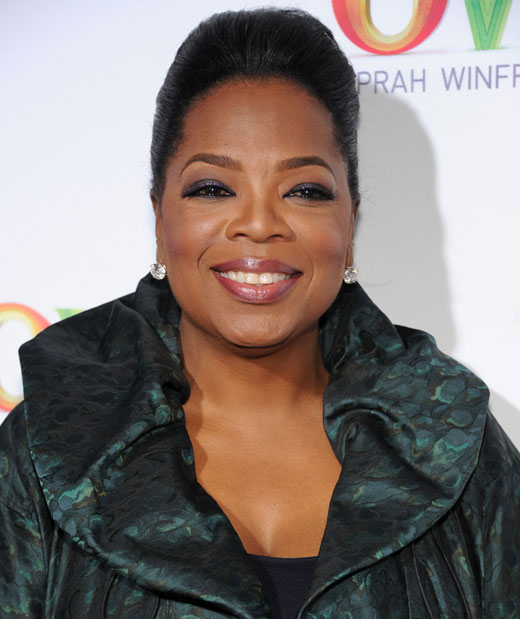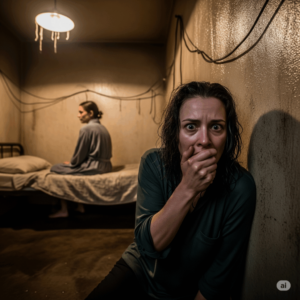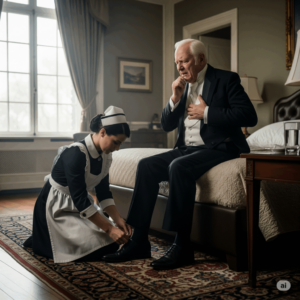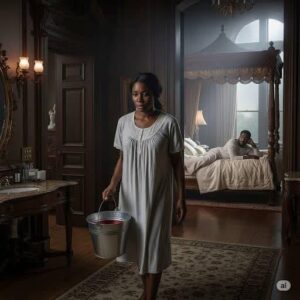Mo’Nique’s Stunning Testimony Shakes Up Diddy Trial: Names Tyler Perry, Oprah, and Others in Hollywood Controversy
On the sixth day of the highly publicized trial involving Sean “Diddy” Combs, the courtroom was met with an unexpected and powerful moment as Oscar-winning actress and comedian Mo’Nique took the stand. What was anticipated to be another routine day of legal proceedings quickly turned into a pivotal session, as Mo’Nique delivered a testimony that connected Diddy to prominent Hollywood figures like Tyler Perry, Oprah Winfrey, and Bishop T.D. Jakes. Her words, backed by detailed accounts and documentation, shifted the focus of the trial and brought long-standing industry issues into the spotlight.
The atmosphere in the courtroom was charged even before Mo’Nique’s arrival. Reporters and observers crowded the hallways, eager to catch any significant developments. No one, however, had anticipated Mo’Nique’s appearance as a witness. Her name wasn’t on any publicized list, yet when she entered through a side door with a calm and determined demeanor, the room’s energy changed instantly. Diddy’s legal team appeared visibly unsettled, exchanging quick glances, while prosecutors seemed to prepare for a critical moment. As Mo’Nique took her seat, Diddy, dressed in a charcoal suit, leaned toward his attorney, his usual composure showing subtle signs of strain.

From the moment Mo’Nique began speaking, her voice was steady and resolute. “I was asked here to speak the truth, and that’s what I intend to do,” she declared. For years, she had publicly shared her experiences of feeling sidelined by Hollywood, pointing to figures like Tyler Perry, Oprah Winfrey, and Lee Daniels as contributors to her challenges. Many had dismissed her claims as personal grievances, but under oath in a federal courtroom, her statements carried a new weight. The judge allowed her to present a detailed timeline of events, including specific dates of meetings, calls, and promises that she alleged were broken. This timeline painted a picture of her interactions with key individuals tied to the trial.
Mo’Nique’s testimony didn’t solely focus on Diddy. She directed significant attention toward Tyler Perry, recounting a private conversation from 2018. According to her, Perry acknowledged that her exclusion from certain Hollywood opportunities was unfair. She testified that he promised a public apology but never followed through. Instead, she claimed Perry expressed concern that such an apology would draw unwanted attention to others who were not ready to face scrutiny. When pressed on who he meant, Mo’Nique directly named Diddy, stating that Perry was worried about the repercussions tied to him. This revelation caused a stir among courtroom observers, as it suggested a broader network of influence and protection within the industry.

She went further, presenting a transcript of a recorded conversation with Perry, where he allegedly admitted to knowing about questionable activities at events tied to Diddy. While the audio itself was not played in court due to pending authentication, the judge allowed the transcript to be entered as evidence. This moment underscored the possibility that multiple high-profile individuals might have been aware of certain behaviors but chose to remain silent to safeguard their reputations. Diddy’s defense team objected, arguing that the testimony was speculative, but the prosecution countered that it provided essential context about how reputation management may have played a role in the events under scrutiny.
One of the most striking parts of Mo’Nique’s testimony came when she shared a personal experience from 2006. She described being invited to a private gathering at a lavish estate in the Hollywood Hills, hosted by Diddy. Upon arrival, her phone was taken by staff, and she was escorted inside where the ambiance felt unusual. She recalled seeing guests being led to private areas and hearing staff mention confidentiality agreements as a condition for participation. Uncomfortable with the environment, Mo’Nique chose to leave without signing anything. She testified that following this decision, her career opportunities seemed to diminish—major roles became scarce, and invitations to industry events dwindled. She suspected that her refusal to conform had marked her as a liability.
Her account echoed earlier testimonies in the trial, including that of Cassie Ventura, who described similar settings at events tied to Diddy. However, Mo’Nique’s perspective was unique as an established actress who entered the situation on her own terms and left with a clear sense of unease. She suggested that such experiences were part of a larger, orchestrated system within certain circles of the entertainment world. When asked if she believed Tyler Perry had played a role in protecting Diddy’s image, Mo’Nique affirmed without hesitation, describing it as a coordinated effort to maintain silence around controversial matters.

Mo’Nique also referenced a widely publicized moment involving Tyler Perry and Bishop T.D. Jakes, where Perry made a significant donation during a church service. While many viewed it as a generous act, Mo’Nique framed it differently, suggesting it was a strategic move for image control. She noted that around the same time, rumors and discussions about Diddy’s events seemed to vanish from public discourse, implying that influence and resources were used to quiet potential controversies. Photos presented by the prosecution showed Perry and Diddy together at a public event shortly after, appearing friendly and unburdened by the circulating allegations, which Mo’Nique argued supported her perspective of an industry protecting its own.
As her testimony continued, the courtroom remained captivated. Mo’Nique pulled out a printed transcript of the 2018 call with Perry, reiterating that he had privately admitted to mishandling her situation after a professional fallout. She claimed the recording was made with his knowledge, and in the transcript, Perry reportedly acknowledged that she was not difficult to work with but simply unwilling to accept unfair terms. He also allegedly expressed regret for not publicly supporting her. The judge reviewed the document and allowed the prosecution to proceed with their line of questioning based on its contents.
Throughout her time on the stand, Mo’Nique emphasized the cost of silence in the entertainment industry. “I’m not afraid of being sidelined anymore. I’ve been through it,” she stated, addressing the judge directly. “Silence is the most expensive price any of us pay, and we’ve all paid it.” Her words resonated deeply, drawing attention to the broader challenges faced by those who speak out against powerful figures. Her testimony wasn’t just about personal grievances—it highlighted systemic issues of fairness, accountability, and the protection of reputation over truth.
By the end of her session, Mo’Nique had transformed the narrative of the trial. What began as a case focused on Diddy expanded into a broader discussion about influence, alliances, and the hidden dynamics of Hollywood. Her detailed accounts, supported by timelines and transcripts, provided a compelling perspective that the prosecution leveraged to argue for a deeper investigation into industry practices. While the defense maintained that her statements were speculative, the impact of her words was undeniable, leaving the jury and observers with much to consider.
Mo’Nique’s testimony on day six of the Diddy trial will likely be remembered as a turning point. It brought to light allegations of coordinated efforts to protect certain individuals and raised questions about how far-reaching these networks of influence might be. As the trial progresses, her revelations will continue to fuel discussions about transparency and equity in the entertainment world, urging a closer look at the structures that shape careers and narratives behind closed doors.





